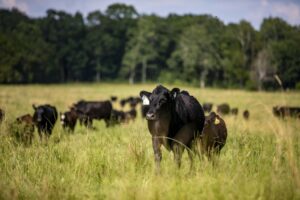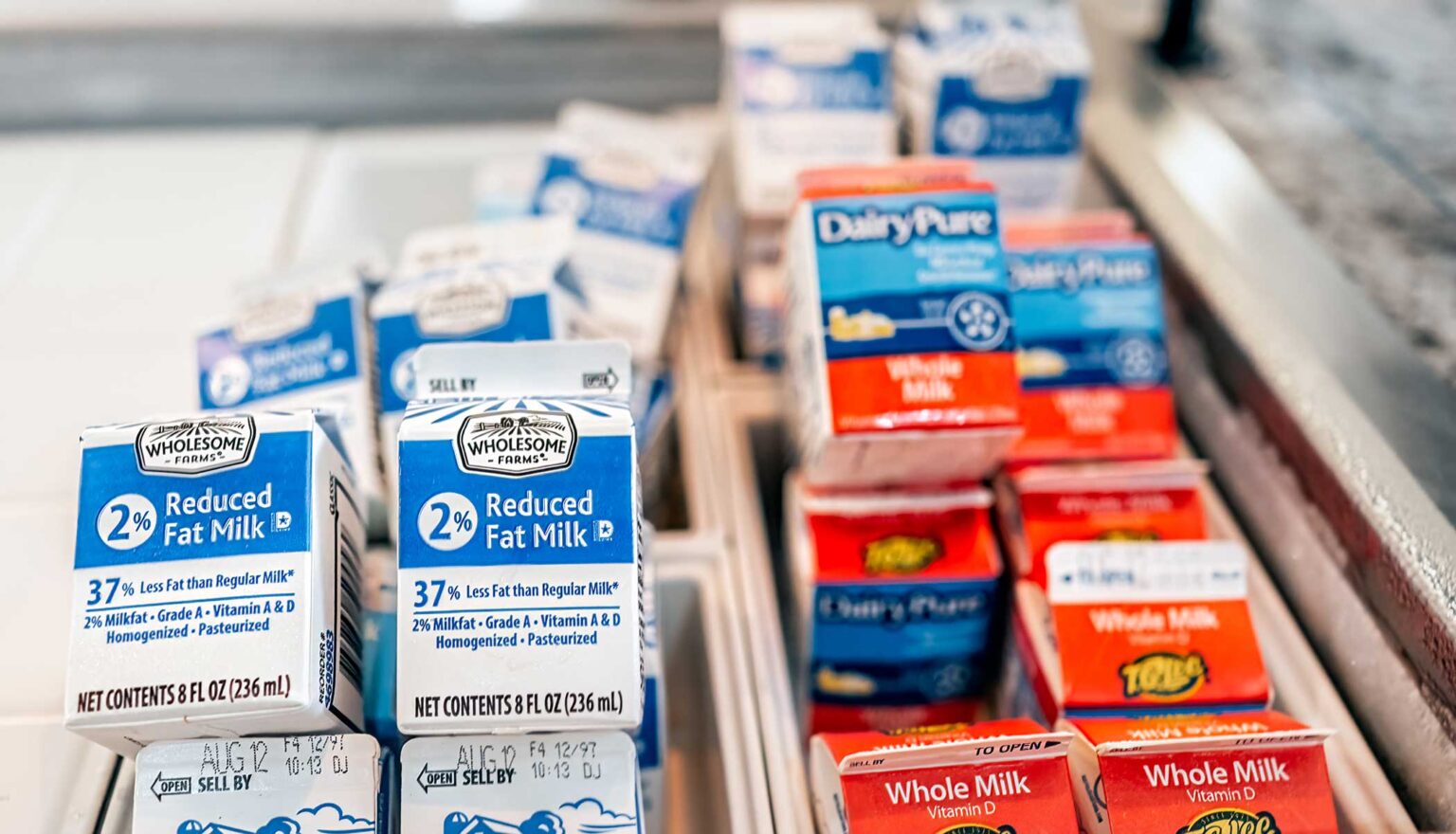Subscribe to Updates
Get the latest agriculture news and updates directly to your inbox.
Author: staff
Tyson Foods’ plan to shut down its longtime beef plant in Lexington, Nebraska, is raising concern across the state’s cattle industry and rural communities. The plant, employing approximately 3,200 workers, will shut down sometime around January 20 as Tyson restructures its beef operations amid shrinking national cattle supplies. The Lexington plant is one of Tyson’s major Midwestern beef facilities, which have been operating below capacity as cattle numbers drop to their lowest level in nearly 75 years. Tyson also said it sustained continued financial losses in its beef business and would move to streamline operations by shifting production to other…
Image by Nokwan007, Shutterstock Top Third Ag Marketing, a division of StoneX Financial Services Inc., helps farmers become better agricultural marketers with the goal of marketing crops in the top third of prices. Mark Gold and his team provide AGDAILY.com with the latest information and a look ahead in their audio commentary. Listen to Mark Gold’s Weekly Grain Comments here! https://www.agdaily.com/wp-content/uploads/2025/11/Top-Third-agdaily-2025-11-24.mp3
When the Lauderdale County FFA String Band from Alabama stepped under the bright lights of the National FFA Talent stage, they brought five and a half years of friendship, countless hours of practice, and small town grit. Made up of seniors Titus Norton and Connor McMains, along with sophomore Ty McMains, the group represents not only their Rogersville school but also the heart of the FFA experience. What began as kids learning music in the ag shop has now grown into a national championship story that will be told around their community for years. Image courtesy of Ivy Harbin Before…
Pre-harvest and year-end are typically the two key seasons for large equipment to sell at auction – but this year, so far, the overall numbers are down. Dave Mowitz and Andy Campbell discuss this trend and some of the possible drivers behind it, and where they believe the 2025 used equipment market will end up. However, not all types of machinery have seen a slow down. Older models are seeing gains in sales prices and desirability, perhaps due to simpler maintenance and relatively lower prices versus newer models. High horsepower tractors are also seeing steady demand. As the myriad factors…
The Agriculture Department will soon roll out the second stage of the Supplemental Disaster Relief Program. We asked Richard Fordyce, undersecretary of agriculture for farm production and conservation, about the program and when — or if — the trade aid payments previously teased by the administration will be announced. Plus, Joby Young outlines what’s included for agriculture in the deal lawmakers struck to reopen the government and Dan Halstrom with the U.S. Meat Export Federation discusses the impact of the U.S.-China trade deal for the meat industry. Emily Skor with Growth Energy also weighs in on the biofuel sector’s continued…
After years of research and development, autonomous technology has arrived. With labor shortages and changing weather conditions creating smaller productivity windows, autonomy may be the key farmers are looking for. Autonomous solutions have finally moved past the trial stage, with limited commercial availability in 2025. Previously, manufacturers had provided farmers with autonomous technology to test — but 2025 marks the first growing season in which farmers bought and used this technology for themselves. Autonomous equipment is now out in the fields seeding, spreading fertilizer, weeding, tilling, and hauling grain carts. Heavy Machinery AGCO has adjusted its strategies to ensure its…
By Cami Koons Republican and Democratic legislators agreed Thursday that water quality is a pressing issue in the state along with property taxes and public health — all of which will be necessary to balance as the Legislature returns in January. Water quality, cancer, and conservation efforts in Iowa were a key topic on day two of the Iowa Nature Summit at Drake University as a panel of Iowa lawmakers discussed potential 2026 policies. Sen. Sarah Trone Garriott, D-West Des Moines, said water quality, especially after a lawn watering ban was issued in central Iowa over the summer due to elevated nitrate…
By Tim Henderson In a tacit admission that U.S. food production requires foreign labor, the Trump administration is making it easier for farmers to employ guest workers from other countries. At the same time, U.S. Immigration and Customs Enforcement (ICE) in recent months appears to be refraining from conducting agricultural workplace raids, even as it scours Democratic-led cities for immigrants who are in the country illegally. “We really haven’t seen agriculture targeted with worksite enforcement efforts, and early this year we did,” said Julia Gelatt, associate director of U.S. immigration policy at the Migration Policy Institute, a nonpartisan think tank.…
Not long past 9 a.m. CT, March corn was down 2¼¢ at $4.35½ per bushel. January soybeans were down 7½¢ at $11.15 per bushel. March CBOT wheat was down 3¾¢ at $5.37 per bushel. March KC wheat was down less than a penny at $5.23½ per bushel. March Minneapolis wheat was up 1½¢ at $5.82. January feeder cattle were down $6.25 at $310.13 per hundredweight (cwt). February live cattle were down $3.18 at $212.23 per cwt. February lean hogs were down $2.53 at $77.13 per cwt. January crude oil was down $1.48 at $57.52 per barrel. The U.S. Dollar Index…
One day after the U.S. Senate Committee on Agriculture, Nutrition & Forestry House unanimously advanced the Whole Milk for Healthy Kids Act, the full Senate approved it. The bipartisan bill would allow for whole (3.25 percent) and reduced-fat (2 percent) milk to once again be served in school cafeterias nationwide. It now heads to the U.S. House for consideration, where it is expected to pass. A similar bill in 2023 had overwhelmingly passed the House but stalled in the Senate. Whole and 2 percent milk were removed from school meals programs beginning in 2012 as part of an effort to…









:max_bytes(150000):strip_icc()/AuctionPhoto-325923bd507d4299bcb339de488551bf.jpg)
:max_bytes(150000):strip_icc()/29914890324_aa73e98b2d_o-6f344ec3cf7c42588a397ea481241aa3.jpg)
:max_bytes(150000):strip_icc()/JohnDeere_Autonomy_r4k079314_rrd-a616d090c9c146f585345a32cf23fd74.jpg)
:max_bytes(150000):strip_icc()/iowa-river-iowa-falls--2048x1536-e28890b87e014dadaada5d8dd012b516.jpg)
:max_bytes(150000):strip_icc()/47075387454_577e826006_o-af71ed3c08d8463c8580a9b189fa2e58.jpg)
:max_bytes(150000):strip_icc()/Markets-9-Corn-down-soybeans-down-8-3d682c335a5f4fd4b6f40bdf3c85708f.jpeg)
